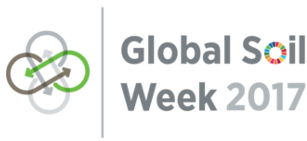SOIL RESTORATION FOR ACHIEVING THE 2063 + 2030 AGENDAS IN AFRICA:
LINKING GLOBAL AMBITIONS TO LOCAL NEEDS
RATIONALE
Investments in soil and land restoration are crucial to combat hunger, reduce poverty and address climate change impacts. The creation of conditions that enable farmers to sustainably manage their land are pivotal to make these efforts count. Equal access to land, credit, agricultural inputs and services are needed to ensure resilient and just communities over the long run. Across Sub-Sahara Africa national and regional actors and initiatives aim to restore landscapes and their soils, like the African Forest Landscape Restoration Initiative (AFR100), the Great Green Wall Initiative and the African Resilient Landscapes Initiative (ARLI). The joint coordination of these efforts with continuous exchange of experiences are key to advance national agendas and promote synergies across scales and sectors in the region.
These important programmes and initiatives need to be based on different types of knowledge and experiences. Links between science and policy-making need to be strengthened into processes of implementing, monitoring and follow-up of the 2063 Agenda “The Future we want for Africa”, the 2030 Agenda for Sustainable Development, and the Paris Agreement under UNFCCC. The same holds true for the contributions by practitioners and the civil society. Inclusive and integrative fora are needed to develop policy frameworks that incorporate these perspectives and are grounded in rural realities. Further, these multi-stakeholder fora can support valuable linkages between national and regional processes to relevant global processes.
The African Soil Seminar will provide a platform for governments, civil society, private business and academia to share lessons on soil and landscape rehabilitation programmes. The objective is to inform future investments to durably support the rehabilitation of soil and landscapes for food security, poverty reduction and sustainable development. It takes place against the backdrop of a growing population, the risks that are brought about by climate variability and resource degradation trends.
OBJECTIVES
- Support the identification of investments in soil and landscape rehabilitation that contribute to achieving the 2063 Agenda, the 2030 Agenda for Sustainable Development, and the UNFCCC Paris Agreement.
- Strengthening multi-stakeholder partnerships and increasing cooperation and knowledge exchange to support the implementation of soil and landscape restoration across the continent.
- Support inclusive and participatory learning and follow up and review processes to assist the successful implementation of the 2063 Agenda, the 2030 Agenda for Sustainable Development, and the UNFCCC Paris Agreement.
- Thereby contribute to linking local and regional needs to global processes and use the created momentum to feed into global fora on sustainable development, including the High Level Political Forum (HLPF) on Sustainable Development.
BACKGROUND
The African Soil Seminar was inspired by African stakeholders at the Global Soil Week 2015 (www.globalsoilweek.org), who expressed strong interest in creating a regional African platform for sustainable soil and land management. The Global Soil Week is a multi-stakeholder platform for management of land and soil resources in the context of sustainable development that brings together a wide variety of actors from policy-making, research and civil society, to discuss relevant topics and challenges to soil and land resources.
Embedded in the Special Initiative “ONE World – No Hunger” by the German Federal Ministry for Economic Cooperation and Development (BMZ), the Global Soil Forum is pursuing a research project on “Soil Protection and Rehabilitation for Food Security” in Kenya, Ethiopia, Burkina Faso and Benin as well as in India. In the pursuit of this project, the Global Soil Forum is closely collaborating with the German Agency for International Cooperation (GIZ).
Building on the experience of the Global Soil Week, the seminar will focus on soil and land resources and Africa. It aims at involving actors from different sectors in order to explore and discuss the contribution of soil and landscape restoration to the 2063 Agenda, the 2030 Agenda for Sustainable Development, and the UNFCCC Paris Agreement. Further, we propose exploring how international multi-stakeholder platforms such as the Global Soil Week can contribute to advancing local, national and regional agendas for action on soil and landscape restoration for realizing the ‘Future we want for Africa’.
OVERARCHING QUESTIONS AND THEMES
The African Soil Seminar will consider the following questions:
- How can soil restoration policies be brought to the ground to respond to local needs?
- How can soil restoration be integrated into existing decision making processes, how should prevailing existing decision making processes be strengthened?
- How can soil restoration contribute to the 2063 Agenda, the 2030 Agenda and the Paris Climate Agreement? How can follow up and review processes be designed so that they support the implementation of these global agreements? What types of data should be collected and reports produced for monitoring and interlinking courses of action?
- How can inclusive and participatory multi-stakeholder processes be supported to expand solidarities, south-south co-operation and global ‘collective learning’ processes?
- How can soil protection and restoration projects feed into empowerment of local and marginalized communities and enable societies to uphold principles of accountability?
- How do we design soil restoration policies for a food secure Africa that offers development opportunities for its citizens and youth in particular?

